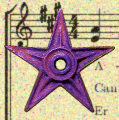User:Jonyungk

|
About me
|
|---|
 Currently a freelance writer, editor and photographer, I formerly wrote music articles for The Flying Inkpot website based in Singapore and have edited on Wikipedia since January 2007. Learning (1) to write for an encyclopedia instead of a reviewing site, which is a different style of writing altogether, and (2) not simply to state something but to explain and simplify it so that others can understand it no matter what their background has been a slow but steady process. While I am far from perfect in these things (as well as everything else), I'd like to think that I am at least getting better at it. I was bitten by the writing bug in high school. Competing in a national scholastic writing competition started the ball rolling; writing my first published article on a subject I really cared about (Tchaikovsky's Manfred Symphony) accelerated that rolling to high speed. Going through the writing program at the University of Redlands was followed by a five-year stint teaching English as a Second Language, test preparation and composition for a private school and a little over 10 years in publishing. The division for which I worked was closed in 2000 but I still work in the field as a freelance writer and editor. Along with the writing program, Redlands boasted an excellent music program, of which I took advantage as much as possible. Eventually I studied 20th-century music history with composer Barney Childs, who in turn was taught by Aaron Copland and Eliott Carter. I also studied writing and literature with him at Johnston Center, then called Johnston College and a semi-autonomous offshoot of the university. Childs was one of the two teachers who encouraged me to not just say whether I liked a book, a poem or a piece of music but to take it apart, find out how it worked and why I liked it; this way, I would know what I was talking about and could incorporate it accordingly. This is something I still practice today and use in my Wiki writing, not just for my personal growth but to benefit readers as much as possible. A couple of things you may read about me:
Now that you've been warned about my faults and you may realize I don't sprout horns and a forked tail (though I will admit an extreme fondness for Hellboy, who fits this description), how about we work together? You might even live to tell about it. |
Things I've accomplished
| ||||||||||||||
|---|---|---|---|---|---|---|---|---|---|---|---|---|---|---|
Featured articles (FA)[edit]
Articles created[edit]2007[edit]
2008[edit]
2009[edit]
2010–2012 (Wiki break 2011)[edit]
|
Notes from a Tchaik nut
|
|---|
Tchaik nut[edit]Sounds like some exotic food you might buy at Fresh & Easy, doesn't it? While I did not fall from a tree as nuts generally do (and with that I'll dispense with the bad jokes, so you can now breathe easier), I will have to admit "guilty as charged." The Pathetique symphony was one of the two earliest classical music pieces with which I bonded as a child, which might be some indication of what a moody little kid I was back then. (Dvořák's New World symphony was the other.) Thanks to Time-Life Records, I discovered the Sleeping Beauty suite, Serenade for Strings and Francesca da Rimini By then I was hopelessly hooked. Besides, I was well-acquainted with the 1812 Overture. As both sons of a friend of mine put it, any piece with cannons in it is okay, even if it is classical. (Nice to know there's hope for high culture among the younger set, isn't it?) Some light bedtime reading[edit]Recommended[edit]
By sheer weight if nothing else, Brown's four-volume set could be considered definitive. A couple of points, good and bad:
If you don't want to wade through the set, Man and Music is a single-volume overview. However, you'll miss way too much of Brown's music analysis to make it worthwhile. Poznansky concentrates on the composer, not the works, and takes the opposite tack as Brown. To Poznansky, Tchaik saw his sexuality as something he had to live with and did not suffer "serious psychological damage" from it. His insights on the composer, his circle and culture make it a worthwhile counterweght to Brown, particularly with it coming from a Russian as opposed to Western view. (Nothing like the home field advantage, right—at least since the Stalinist paranoia about his personal life ius supposedly not so pervasive?) Wiley falls between Poznansky and Brown. He thinks Tchaik did not feel guilty over his orientation but remained aware of the fallout from society should it become public; therefore, the composer remained discrete but sexually active. Wiley discusses the music and comes to different conclusions but does not go into nearly the same detail as Brown. Nevertheless, if I had to pick one book with which to become better acquainted with Tchaikovsky, I would select Wiley. Secondary sources[edit]
If you are going to get serious about Tchaik, you need to know about his culture and musical background. Figes and Maes will help tremendously—Figes on the cultural and political hierarchy, both of which had a direct impact on Tchaik's work, and Maes on the musicological aspects. Unless you have some knowledge of all these factors (which were unique to Russia and, especaially, in terms of its music, ran counter to Western rules and practice), you will not have a firm understanding of the challenges he faced and the compromises he had to make to arrive where he did stylistically. Poznansky will give you the composer as seen by his peers, family and others who came into contact with him—not as interpreted by a biographer or musicologist (though Poznansky prefaces each section with his own insights) but the plain, unvarnished sources themseles. For further insight on Tchaikovsky's life, this can be tremendously helpful. Other books to consider[edit]
If you read more than generally about Russian music, you will run into Gerald Abraham sooner or later, as he was a pioneer Westerner on the subject. He was a product of his time, though, in some of his views. The same is true for the authors he corralled for his compilation, Music of Tchaikovsky. If you treat what they have to say in some ways like Brown—in other words, if you ignore the conclusions and read about the insights that led the writers to them—you can gain quite a bit on the musical conventions with which Tchaik struggled and how he got around them. High points include Martin Cooper's essay on the symphonies and Eric Blom's on the concertos. Botstein's essay in Tchaikovsky and His World is valuable in that it offers views from near-contemporary critics on the emotional and psychological impact on his music and opinions not normally seen by general readers as to how it was perceived in the West. He also offers his insight, that of a musicologist and conductor, as to the mechanics of the music. Again, extremely worthwhile. Holden's biography does not have the authority of Brown or Wiley but is still a solid effort, albeit controversial at times, and adds some details and insights not found in either of the others. (He takes a similar tack as Brown on the suicide theory and has also been labeled a homophobe.) Warrack's biography is likewise well-crafted but is more general and is showing its age. If you like pictures, though, he offers a slew of them. His analysis of the symphonies and concertos, printed separately as a BBC Music Guide, is likewise generalized but a good place to start if you want to learn more about the pieces themselves. Wiley's book on Tchaik's three ballets gives a picture of the musical and societal climate in which they were created; for lovers of these works or of ballet in general, this book is a must. |
Don't kill the sacred cow
|
|---|
Occasionally I will work on an article only to discover it is considered a sacred cow by various Wiki editors and readers. Pyotr Ilyich Tchaikovsky has been one of them—loved not always too wisely but too well, to quote the bard, filled with controversy and yet seemingly so innocent, as though a gentle Holstein quietly chewing its cud as it stood in a pasture filled with grass and sweet clover. Little did I know. Yet I persisted, though PR, GAC, FAC and a near-complete rewrite. I have yet to enjoy the steak that I have seemingly carved from all this effort. Perhaps Twain was right—I should settle for a burger and be happy. Could I at least have fries with that? |
Awards and other fun stuff
| ||||||||||||||||||||||||||||||||||
|---|---|---|---|---|---|---|---|---|---|---|---|---|---|---|---|---|---|---|---|---|---|---|---|---|---|---|---|---|---|---|---|---|---|---|

|
Future projects
| ||
|---|---|---|
|
For which Wikipedia truly stands
[edit]Washington's Monument, February, 1885
[edit]Ah, not this marble, dead and cold:
Far from its base and shaft expanding—the round zones circling, comprehending,
Thou, Washington, art all the world's, the continents' entire—not yours alone, America,
Europe's as well, in every part, castle of lord or laborer's cot,
Or frozen North, or sultry South—the African's—the Arab's in his tent,
Old Asia's there with venerable smile, seated amid her ruins;
(Greets the antique the hero new? 'tis but the same—the heir legitimate, continued ever,
The indomitable heart and arm—proofs of the never–broken line,
Courage, alertness, patience, faith, the same—e'en in defeat defeated not, the same:)
Wherever sails a ship, or house is built on land, or day or night,
Through teeming cities' streets, indoors or out, factories or farms,
Now, or to come, or past—where patriot wills existed or exist,
Wherever Freedom, pois'd by Toleration, sway'd by Law,
Stands or is rising thy true monument
by Walt Whitman.






































